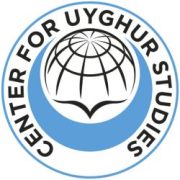By Dareen Ebrahim
As the annual Black Friday shopping frenzy arrives, it is imperative to confront the profound ethical failures embedded within the global supply chain. Beneath the surface of enticing discounts lies a grim reality: some of the world’s most recognizable brands are complicit in forced labor practices tied to the Uyghur genocide in East Turkestan, also referred to by the Chinese government as the Xinjiang Uyghur Autonomous Region.
This systemic exploitation of the Uyghur population—a deliberate campaign of cultural erasure and forced assimilation—serves as a stark reminder of the human cost behind seemingly innocuous products. Black Friday, with its unprecedented demand for inexpensive, mass-produced goods, is a reflection of the structures that allow such exploitation to persist.
Genocide in East Turkestan
The Chinese government has transformed East Turkestan into an epicenter of repression, forcing over a million Uyghurs into internment camps under the guise of “reeducation.” These camps are sites of indoctrination, physical and psychological abuse, and forced labor. Beyond these facilities, Uyghurs are coerced into state-mandated labor programs that send them to cotton fields, textile factories, and other manufacturing sites across China.
East Turkestan produces over 20% of the world’s cotton, but forced labor extends far beyond textiles. It infiltrates industries as varied as automotive manufacturing, electronics, and consumer goods. Every product sourced from this region is tainted with the suffering of a people stripped of their autonomy and culture.
Corporate Complicity: The Faces of Exploitation
Investigations have repeatedly exposed major global brands across multiple industries for their reliance on forced labor in East Turkestan. These companies profit from a system of exploitation that provides cheap goods to global markets. The following are among the most implicated:
Fashion and Apparel
- Shein: The fast-fashion giant has been criticized for its opaque supply chain and reliance on cotton from East Turkestan.
- Zara (Inditex): The parent company of Zara has faced allegations of sourcing textiles from factories that employ Uyghur forced labor.
- H&M: While the brand has pledged to stop sourcing from East Turkestan, its historical ties to the region and insufficient enforcement of ethical standards remain problematic.
- Nike: Reports indicate that Uyghur forced labor has been used in factories both within and outside of East Turkestan to produce Nike goods.
- Adidas: This sportswear company has faced allegations of sourcing materials from suppliers implicated in forced labor practices in the region
- Puma: Investigations have linked Puma’s products to cotton sourced from East Turkestan, raising significant concerns about its ethical commitments.
Technology
- Apple: The tech giant has been implicated in sourcing components from suppliers connected to Uyghur forced labor, further entrenching exploitation in global electronics.
- Samsung: Similar to Apple, Samsung has faced allegations of benefiting from forced labor in its supply chains.
- Huawei: The Chinese telecom company has been sanctioned for its role in enabling mass surveillance and human rights abuses in East Turkestan.
E-commerce
- Temu: The rapidly growing online retailer is under investigation by the U.S. Department of Homeland Security for allegedly violating the Uyghur Forced Labor Prevention Act by selling goods tied to forced labor in East Turkestan.
Automotive Industry
- Volkswagen: Despite public commitments to ethical practices, Volkswagen has been criticized for its continued operations in East Turkestan and reliance on components tied to forced labor.
- BMW: Reports have revealed that BMW imported vehicles containing components from suppliers connected to Uyghur forced labor.
- Tesla: Tesla has been implicated in sourcing aluminum and other materials produced under conditions of forced labor in East Turkestan.
A Call for Accountability: Ending Complicity in Uyghur Forced Labor
Consumers must recognize their role in this global crisis. Buying from brands complicit in Uyghur forced labor perpetuates exploitation. Refuse to support these companies. Boycott those implicated, prioritize ethical alternatives, and demand greater accountability. The days of ignorance are over—every purchase is a choice, and complacency enables oppression.
Corporations cannot hide behind public relations campaigns and superficial audits. Statements of intent without action are meaningless. Companies must sever all ties with suppliers linked to forced labor and implement transparent, verifiable systems to ensure ethical practices. Anything less is complicity in a crime against humanity.
Governments have an obligation to act decisively. Policies like the Uyghur Forced Labor Prevention Act must be globalized and rigorously enforced. Import bans, trade restrictions, and severe penalties for violators are essential. Governments that turn a blind eye to these abuses are not neutral; they are complicit.
International bodies must unequivocally label the treatment of Uyghurs in East Turkestan as crimes against humanity. Economic sanctions and diplomatic pressure on the Chinese government are non-negotiable. The global community cannot afford inaction while millions are enslaved under a genocidal system.
There are no bystanders in this crisis—only participants. Whether as consumers, corporations, or governments, we all have a responsibility to act. This is not a matter of charity; it is a demand for justice. Boycott exploitation. Hold the guilty accountable. End complicity.
The “Black Friday” Reminder
The Uyghur genocide in East Turkestan is not an abstract crisis—it is woven into the fabric of the clothes we wear, the electronics we use, and the vehicles we drive. As long as corporations continue to profit from forced labor, and as long as governments fail to enforce accountability, this exploitation will persist.
Black Friday is a stark reminder of the global systems that normalize human suffering in the name of profit. It is a call to action—not for consumers alone, but for corporations, policymakers, and international organizations. Ending the complicity in Uyghur forced labor requires systemic change, unwavering accountability, and a collective commitment to upholding human dignity.
Sources:
- Australian Strategic Policy Institute. (2020). Uyghurs for sale: ‘Re-education’, forced labour and surveillance beyond Xinjiang. Retrieved from https://www.aspi.org.au/report/uyghurs-sale
- Amnesty International. (2021). China: Draconian suppression of Uyghurs exposes systemic repression. Retrieved from https://www.amnesty.org/en/latest/news/2021/06/china-draconian-suppression-of-uyghurs/
- BBC. (2021). Xinjiang: More evidence of forced labour. Retrieved from https://www.bbc.com/news/world-asia-china-56250915
- Business & Human Rights Resource Centre. (2020). 83 major brands implicated in report on forced labour of ethnic minorities from Xinjiang. Retrieved from https://www.business-humanrights.org/en/latest-news/china-83-major-brands-implicated-in-report-on-forced-labour-of-ethnic-minorities-from-xinjiang/
- Deutsche Welle. (2020). Uyghur rights: Clothing firms under fire over forced labor. Retrieved from https://www.dw.com/en/uyghur-rights-clothing-firms-under-fire-over-forced-labor/a-65732080
- Global Labor Justice. (n.d.). Labor exploitation in the textile industry. Retrieved from https://globallaborjustice.org/
- Human Rights Watch. (2021). Break their lineage, break their roots: China’s crimes against humanity targeting Uyghurs and other Turkic Muslims. Retrieved from https://www.hrw.org/report/2021/04/19/break-their-lineage-break-their-roots/chinas-crimes-against-humanity-targeting
- Le Monde. (2024). The suspicion of forced labor and lack of transparency complicates Shein’s future. Retrieved from https://www.lemonde.fr/
- New York Post. (2024). China’s Temu spies on users, under DHS investigation over forced labor violations. Retrieved from https://nypost.com/2024/11/25/us-news/chinas-temu-spies-on-users-under-dhs-investigation-over-forced-labor-violations-official/
- Reuters. (2024). Volkswagen exits Xinjiang operations amid forced labor concerns. Retrieved from https://www.reuters.com/business/autos-transportation/vw-exit-xinjiang-operation-with-sales-local-plant-test-track-sources-say-2024-11-27/
- The Guardian. (n.d.). Investigative coverage on Shein and fast fashion supply chains. Retrieved from https://www.theguardian.com/
- United Nations Human Rights Council. (n.d.). Reports on human rights violations in Xinjiang. Retrieved from https://www.ohchr.org/
- Washington Post. (n.d.). Investigation into forced labor in global supply chains. Retrieved from https://www.washingtonpost.com/
Copyright Center for Uyghur Studies - All Rights Reserved

